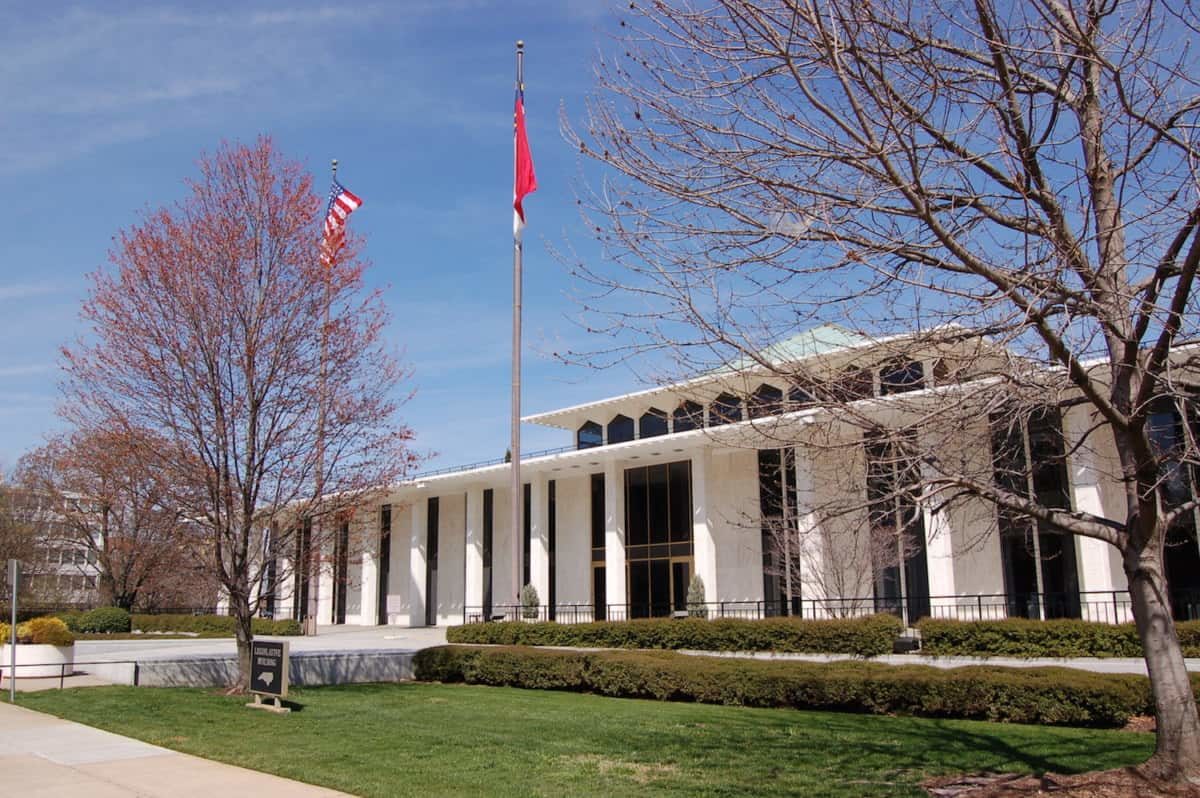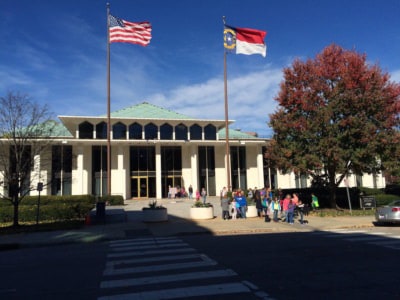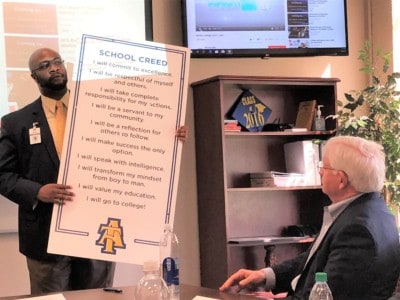
Labor Day, our national holiday enacted in 1894 to honor American workers, has long marked the turning of a calendar page from summertime to school-time. Way back in the 20th Century, Labor Day also served as the election-year starting line for the fall races to the White House and statehouses.
But in our 21st Century hyper-partisan, perpetual-motion politics, general election campaigns have shifted into high-gear long before Labor Day. What’s more, our fractious politics often seems to overwhelm holiday expressions of yearning for national unity and comity in public life.
Two public opinion surveys, released shortly before Labor Day, show that partisan polarization has seeped into public attitudes toward K-12 education.
“Republicans’ satisfaction with the education that U.S. students receive in grades K-12 has plummeted in the past two years to 32 percent, while Democrats’ has edged a bit higher to 53 percent,’’ says a Gallup analysis of its poll taken Aug. 3-7. “The result is stark political polarization in Americans’ views of U.S. education – something that has been uncommon in Gallup’s 18-year trend.”
The Gallup analysis says it’s “not clear’’ why the such polarization has taken place, though it speculates that Republican opinion may have to do with sharp criticism of Common Core standards by GOP officeholders. Actually, that analysis seems rather narrow at a time when debates have had prominent Republicans describing public schools as broken, with too many deficient teachers and too many standardized tests.
Both the Gallup poll and a more extensive survey for EducationNext offer fresh evidence of a long-standing duality in Americans’ views of schools: A clear majority say they are dissatisfied with the education across the nation, while most parents say they are satisfied with their own children’s schools. Americans hear a lot about troubled big-city schools and national decline in comparative test-score rankings, but they also have confidence in the schools they know in their towns and neighborhoods.
“In 2016,’’ says the EdNext Poll analysis, “55 percent of people give their local schools either an A or B, a higher share than at any point in the past 10 years. Over the course of the decade, the shift upward has been from 43 percent to 55 percent. However, only 25 percent give the nation’s schools as a whole one of these top grades.”
The EdNext Poll, taken in May and June, is a rather extensive survey, released a few days ago by EducationNext, a Stanford-Harvard publication with a school-choice bent. The EdNext analysis says its poll found “polarization along party lines’’ on several key issues. Still, its findings also point to divisions within both Democratic and Republican coalitions on education policy.
The EdNext Poll found charter schools more popular among Republicans than among Democrats – by a spread of 16 percentage points. Still, a substantial segment of Democrats support charter schools. This poll also found a significant drop in public support for tax-funded vouchers to enable students of low-income families to attend private schools. Support for vouchers fell more sharply among Republicans than among Democrats.
“Republican support for vouchers and tuition tax credits is slipping, creating a partisan cleavage in the electorate that is opposite the divide observed among Democratic and Republican elected officials,” says the EdNext report. “Opinion with respect to charter schools has also become more polarized, but here the growing opposition among Democrats parallels the intensifying resistance to charters by many state legislatures dominated by that party.”
The EdNext analysis reports a continuing high public acceptance for testing, as well as strong support for merit-pay for teachers. EdNext says that the public estimates that 15 percent of teachers “are unsatisfactory.” Teachers themselves estimate that 10 percent of their colleagues do not perform satisfactorily.
Many of the issues cited in the EdNext Poll do not fit easily into candidates’ 30-second TV commercials or interview sound-bites. In North Carolina, for instance, Gov. Pat McCrory and Atty. Gen. Roy Cooper, the major candidates for governor, have clashed over teacher pay and teacher departures – as short-hand for their overall approaches to education.
Amid the character-laden controversies surrounding Donald Trump and Hillary Clinton and amid the clatter in North Carolina over voting rights and House Bill 2, it’s not clear to what extent education will emerge as a vote-determining issue. Still, with a polarized electorate at both state and national levels, 2016 has the feel of a consequential election for setting education policy over the next four years.
Recommended reading



